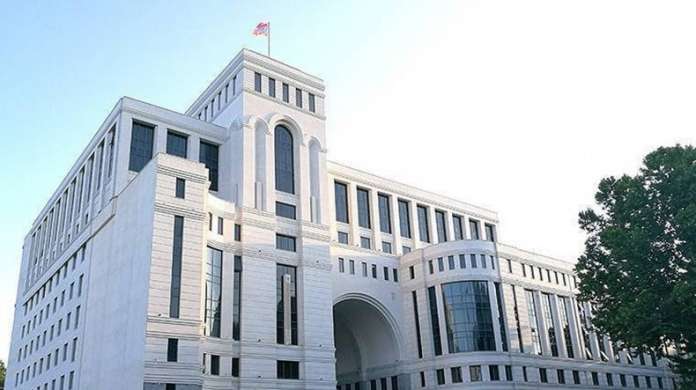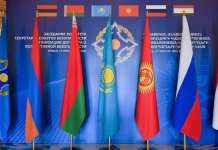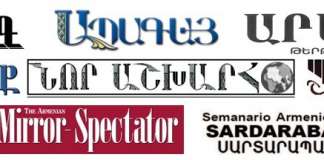Azerbaijan continues the policy aimed at erasing the Armenian traces in the territories under its control, vandalizing and destroying Armenian monuments, the Foreign Ministry of Armenia said in a statement on the 36th anniversary of the Sumgait pogrom marked on 27 February. The full statement is provided below.
“On February 27, 1988, at the initiative and with the full connivance of the leadership of Soviet Azerbaijan, massacres of the Armenian population of Sumgait commenced, accompanied by cases of violence, brutality, enforced disappearances, deprivation of property, and massive violations of human rights. Hundreds were killed, including women, children and elderly, thousands were forcibly displaced.
The Sumgait tragedy was followed by massacres of Armenians in Kirovabad, Baku and other Armenian-populated settlements of Azerbaijan. This chain of events, as well as the complete annihilation of Armenians from Nakhijevan earlier, showed that the mentioned crimes were not separate episodes of violence based on national identity but regular manifestations of a state-orchestrated and state-led policy of Armenophobia. This policy resulted in forcible displacement of about 500.000 ethnic Armenians from Soviet Azerbaijan.
It is noteworthy that these events targeted not only the Armenian population: they were also accompanied by deliberate actions to destroy the Armenian heritage and to erase the Armenian trace in general.
Already in the 21st century, under the conditions of complete impunity, Azerbaijan continued the same policy of ethnic cleansing by terrorizing the native Armenians of Nagorno-Karabakh, inhumane siege, starving them to death and finally depopulating Nagorno-Karabakh through the use of force: ethnic cleansing was completed even in spite of the three legally binding decisions of the UN International Court of Justice.
Today, as well, Azerbaijan continues the policy aimed at erasing the Armenian trace in the territories under its control, desecrating, vandalizing and destroying Armenian religious and historical and cultural monuments. Today as well, the continuing xenophobic and hostile policy towards the Republic of Armenia is accompanied by hate speech, threats and aggressive rhetoric at the highest level, which is an obstacle in the path of overcoming hostility between nations and establishment of peace and stability in the region.
The international community must give an adequate assessment of the committed mass crimes and use all available mechanisms to prevent the recurrence of such crimes and to contribute to the genuine efforts of Armenia to achieve a dignified and lasting peace in the South Caucasus.”
















